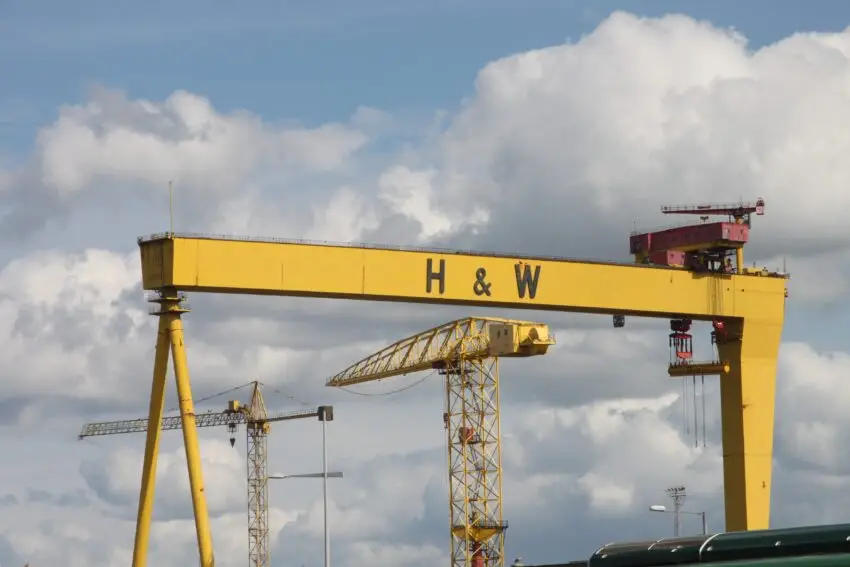The historic Belfast shipyard Harland & Wolff is poised to enter administration as early as Monday, raising concerns over its £1.6 billion Royal Navy contract.
The troubled shipyard faces a cash shortfall by the end of the month, which jeopardises the Fleet Solid Support (FSS) shipbuilding project. This crisis could force the Royal Navy to build these essential support vessels abroad for the first time. Company executives assert that the administration will not affect yard operations, but there is mounting fear that the contract may need to be re-tendered.
Industry experts warn that the Ministry of Defence (MoD) might have to rely on Navantia, the Madrid-based primary contractor who partnered with Harland & Wolff, to complete the work in Spain. Such a move would be a significant departure from the UK’s tradition of domestic warship production. Harland & Wolff had plans to split the ship hull fabrication with Navantia, with final assembly in Belfast. However, insiders speculate that administration could lead to Navantia acquiring Harland & Wolff’s Belfast yard, potentially abandoning the other sites in Appledore, Devon, and Scotland, resulting in substantial job losses.
The GMB union has urged the government to prevent prospective buyers from ‘cherry picking’ Harland & Wolff’s assets, arguing that all four sites are vital for the UK’s defence and renewable energy sectors. Matt Roberts, GMB’s national officer, called the potential loss of the contract ‘one of the greatest betrayals in Northern Ireland’s industrial history.’ Russell Downs, recently appointed as executive chairman at Harland & Wolff, maintains that all four sites remain viable and capable of completing their share of the Navy contract.
Despite Downs’ assurances, uncertainty has led to calls for alternative solutions, such as involving other UK shipyard operators like BAE Systems and Babcock, who were contenders for the original contract. Defence consultant Francis Tusa criticised the MoD’s decision to award the contract to Harland & Wolff and Navantia in 2022, pointing out that Harland & Wolff had not constructed a full-sized ship for around 20 years. Tusa described the decision as overly optimistic.
Labour peer Lord Beamish has urged ministers to develop a rescue plan for the FSS programme, stressing the importance of building the ships within the UK to support the national shipbuilding strategy. He emphasised the critical role these support ships play for the Royal Navy, labelling them ‘vitally important.’ Harland & Wolff’s financial issues intensified after Business Secretary Jonathan Reynolds declined a £200 million refinancing request in July, citing high risks of taxpayer fund losses. Compounding the situation, the company recently disclosed an investigation into a potential ‘misapplication’ of £25 million under previous management, which former CEO John Wood dismissed as ‘ridiculous.’
The government asserts that it is working extensively with all parties to find a solution that preserves UK shipbuilding and protects jobs. However, it also maintains that market forces are best positioned to resolve the crisis, stating that public funding poses significant financial risks. A government spokesperson encouraged all parties to engage with trade unions before making further decisions, acknowledging the workers’ concerns amid the ongoing uncertainty.
The possible demise of Harland & Wolff poses broader implications than job losses, raising significant concerns for the UK’s defence capabilities and industrial strategies. The crisis highlights the challenges of maintaining a domestic shipbuilding industry in an increasingly competitive global market, underscoring the need for a coordinated response to protect the industry’s legacy and future.
As Harland & Wolff stands on the brink of administration, the repercussions could extend far beyond the shipyard, impacting the UK’s defence capabilities and future industrial strategy.


